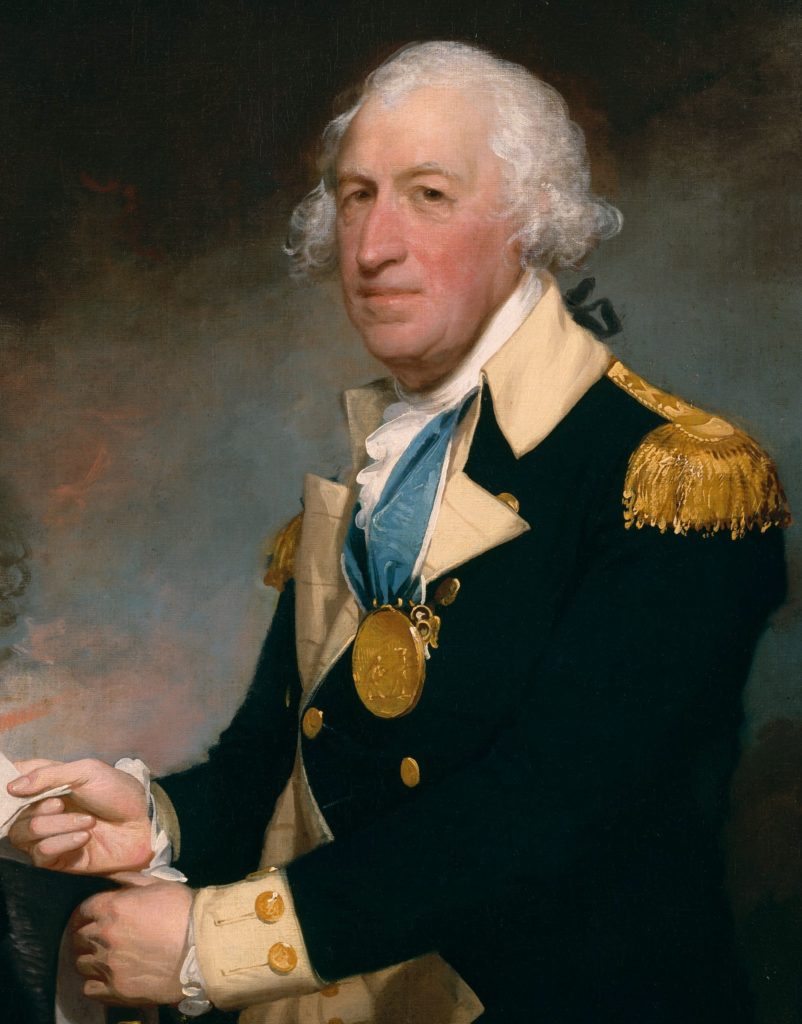
Horatio Gates was a controversial general during the Revolutionary War. While he is remembered for leading the Patriots to a key victory in the Battle of Saratoga, a critical turning point in the war, he also participated in a plot to replace General George Washington.
Early Life
Horatio Gates was born on July 26, 1727 in Maldon, England. His family’s connections allowed him to secure a military commission. Gates first same to North America while serving in the British military in the French and Indian War. After the war ended, he returned to England. In 1772, he and his wife, Elizabeth Phillips, came to America, settling in modern-day West Virginia. The couple had one son, Robert.
Revolutionary War
When the Revolutionary War began, Gates aligned with the Patriots, offering his services to General George Washington. On June 17, 1775, Congress commissioned Gates as a Brigadier General and Adjutant General of the Continental Army, relying on his previous military experience to help organize the militia.
While Arnold was one of the Continental Army’s best combat officers, he believed that he was not properly recognized, with others taking credit for his actions and being awarded promotions ahead of him. Some historians suspect that his bitterness, combined with influence of his wife’s loyalist family, may have led to his betrayal of the Americans.
In 1776, Gates was given command of Fort Ticonderoga. One year later, he took over the Northern Department. He was in command when the Continental Army defeated the British at the crucial Battles of Saratoga, although officers under his command, including Benedict Arnold, were largely responsible for the successful military action. Nonetheless, Gates was awarded a gold medal for his victories over the British in the Battles of Bennington, Fort Stanwix, and Saratoga.
Gates was involved in a plot to replace George Washington as Commander-in-Chief of the Continental Army. The “Conway Cabal” was unsuccessful, and Washington remained in control of the army. In 1780, Gates’ army was bitterly defeated by the British in Camden, South Carolina, resulting in more than 1,000 troops being captured. The loss destroyed Gates’ military reputation and prompted an official inquiry into his actions, although he was never charged.
Later Life
Gates’ wife Elizabeth died in 1783, and he retired from the military one year later. Gates remarried in 1786. He and his new wife, Mary Valens, freed their slaves and moved to Rose Hill, New York, where they played an active role in New York City society. Gates served one term in the New York State Legislature in 1800. He died on April 10, 1806.








